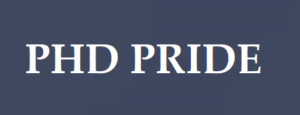Introduction: Navigating a New Academic Landscape
Embarking on a PhD journey in the United States is an exciting yet challenging adventure, especially for international students. The transition involves adapting to a new educational system, cultural environment, and academic expectations. This guide aims to provide practical strategies and insights to help international PhD students thrive in US academia.
1. Understanding the US Academic System

The US academic system may differ significantly from what you are used to. Familiarizing yourself with its structure and expectations is crucial for a smooth transition:
- Coursework and Research: Unlike some countries, US PhD programs often include a significant amount of coursework before transitioning to the research phase. Be prepared for both components.
- Teaching Responsibilities: Many PhD students in the US are required to teach undergraduate courses or assist professors. This can be a valuable experience but may require time management and communication skills.
- Advisor-Student Relationship: Building a strong relationship with your academic advisor is essential. Advisors guide your research, provide support, and can be instrumental in your academic success.
2. Adapting to Cultural Differences

Adapting to a new culture can be both exciting and challenging. Embrace the opportunity to learn and grow from the experience:
- Cultural Awareness: Take the time to learn about US customs, traditions, and social norms. This will help you navigate social interactions and build relationships.
- Language Skills: If English is not your first language, improving your proficiency is crucial. Engage in conversations, attend language workshops, and practice regularly to enhance your communication skills.
- Social Integration: Participate in campus activities, join student organizations, and attend social events. This will help you make friends, build a support network, and feel more connected to the university community.
3. Managing Academic Expectations

The academic expectations in the US may differ from what you are used to. Understanding and adapting to these expectations is key to your success:
- Critical Thinking: US academia places a strong emphasis on critical thinking and independent research. Be prepared to question assumptions, analyze data, and develop your own perspectives.
- Active Participation: Class participation and engagement are often expected. Contribute to discussions, ask questions, and share your insights to demonstrate your commitment to the learning process.
- Time Management: Balancing coursework, research, teaching, and personal life can be challenging. Develop effective time management strategies to stay organized and meet deadlines.
4. Utilizing University Resources

Most universities in the US offer a wide range of resources to support international students. Take advantage of these services to enhance your academic experience:
- International Student Office: This office provides visa support, orientation programs, and cultural adjustment resources. They can also connect you with other international students.
- Writing Centers: Many universities have writing centers that offer support with academic writing, including research papers, theses, and dissertations. Utilize these services to improve your writing skills.
- Library Resources: Familiarize yourself with the university library’s resources, including databases, journals, and study spaces. Librarians can assist you with research and accessing materials.
5. Building a Support Network

Having a strong support network is essential for navigating the challenges of a PhD program:
- Mentorship: Seek out mentors who can provide guidance, support, and advice. This can include faculty members, advanced PhD students, and professionals in your field.
- Peer Support: Connect with fellow PhD students who share similar experiences and challenges. Study groups, research collaborations, and social activities can foster a sense of community.
- Professional Associations: Join professional associations related to your field. These organizations offer networking opportunities, conferences, and resources that can enhance your academic and professional development.
6. Coping with Challenges

Adapting to a new academic environment can be stressful. Implement strategies to cope with challenges and maintain your well-being:
- Self-Care: Prioritize self-care and make time for activities that help you relax and recharge. Exercise, meditation, and hobbies can improve your mental and physical health.
- Seek Help: If you encounter difficulties, don’t hesitate to seek help. University counseling services, academic advisors, and support groups are there to assist you.
- Stay Positive: Focus on your goals and achievements. Celebrate your successes, no matter how small, and remind yourself of the reasons why you embarked on this journey.
Conclusion: Embracing the Journey
Adapting to US academia as an international PhD student is a journey filled with opportunities for growth and learning. By understanding the academic system, embracing cultural differences, managing expectations, utilizing resources, building a support network, and coping with challenges, you can thrive in your PhD program. Embrace the experience, stay resilient, and let your academic journey in the US be a rewarding and transformative one.
References:
Books
- “The International Student’s Guide to US Academia” by Victoria C. Olsen (2019)
- “Adjusting to US Culture” by Intercultural Press (2018)
- “The PhD Experience” by Barbara E. Lovitts (2008)
- “International Students in US Higher Education” by Institute of International Education (2020)
- “Surviving and Thriving in Graduate School” by Barbara E. Lovitts (2008)
Journals
- Journal of International Students
- International Journal of Higher Education
- Journal of Graduate Education
- Higher Education Research & Development
- Journal of Academic Writing
Articles
- “Challenges Faced by International Graduate Students in the US” by Journal of International Students (2020)
- “Adapting to US Academia: Experiences of International PhD Students” by Higher Education Research & Development (2019)
- “Cultural Adjustment and Academic Success: International Students in US Higher Education” by Journal of Higher Education (2018)
- “International PhD Students in the US: Challenges and Opportunities” by Inside Higher Ed (2020)
- “Supporting International Graduate Students in US Academia” by The Chronicle of Higher Education (2019)

